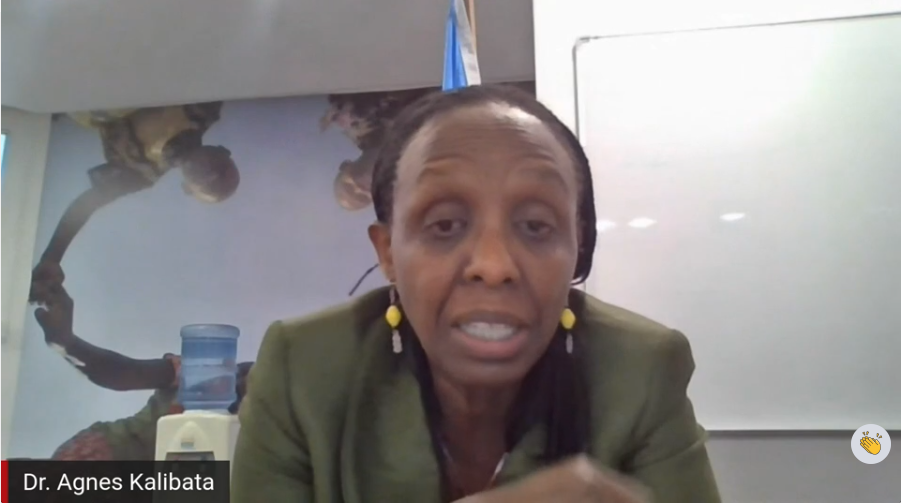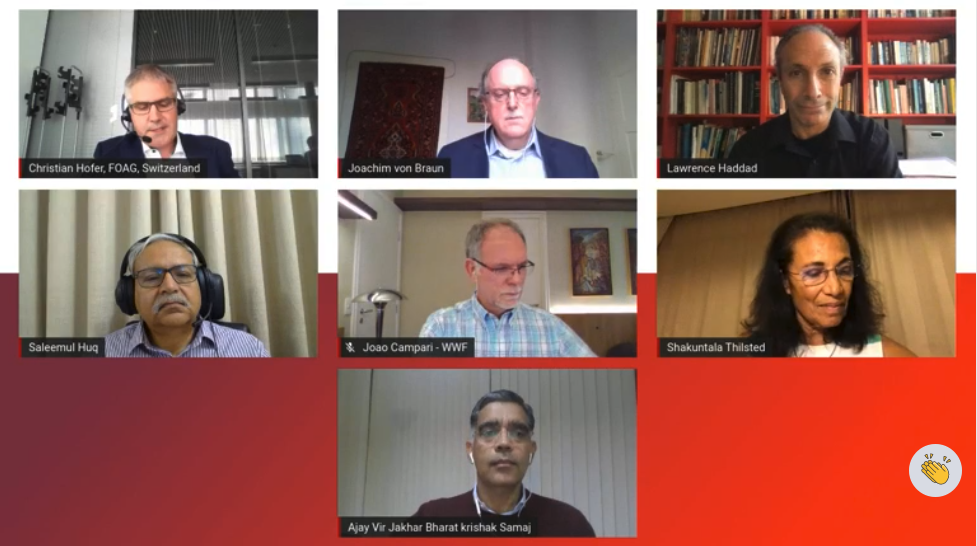Multi-stakeholder SFS Programme platform feeds 25 recommendations to the 2021 Food Systems Summit

The 3rd Global Conference of the One Planet network’s Sustainable Food Systems Programme delivered a set of 25 concrete recommendations across 6 main food systems areas, as part of its substantial contribution to the 2021 Food Systems Summit – and beyond.
Read the recommendations in the Outcome Document here.
Outcome document of the 3rd global conference
With the stark backdrop of the COVID-19 pandemic and the urgency of the ticking climate breakdown clock marking just 9 years until the planet may experience “irreversible damage from climate change”, more than 700 participants joined the virtual conference discussions that took place between 25 November and 3 December of 2020.
Dr. Agnes Kalibata, the Special Envoy for the Food Systems Summit opened the conference appreciating the contributions of the SFS Programme’s network and calling on them to continue support for the “Solutions Summit”, helping with the thinking on “what type of ambitious actions we need to be putting on the table” but also “what type of solutions can help us deal with multiple challenges”.

The conference also hosted the first Global Dialogue of the Food Systems Summit, curated by David Nabarro, in which a diverse range of researchers, farmer representatives, politicians, activists, businesspeople, health professionals, and more held dialogues across 9 subjects under Chatham house rules. Read the outcome report here.
The event was co-hosted by the Ministry of Agriculture and Cooperatives of the Kingdom of Thailand and the co-leads of the SFS Programme (Federal Office for Agriculture, Switzerland; Ministry of Agriculture and Livestock, Costa Rica; WWF), with support from the Federal Ministry of Environment, Nature Conservation and Nuclear Safety, Germany.
Session conclusions
The chairs of the different thematic sessions transmitted the conclusions of their panel’s discussions, which helped craft the 25 recommendations of the outcome document.
Some highlights (among other) that appeared recurrently across sessions were:
- the importance to deliver science-based, integrated and coherent policies that address and manage trade-offs;
- that dealing with trade-offs requires inclusive and participatory approaches, centering the most marginalized in order to correct unfair power imbalances;
- supporting innovation that can deliver on sustainability, whether in terms of aligning financial flows or rewarding good practices and business models that tackle the SDGs;
- the use of available tools such as consumer information, education or true-cost accounting that help connect what happens at production level with consumers;
- prioritizing catalyzer solutions such as school meal sustainable procurement, which in turn can be used to educate our future generations.
Access the conference session recordings:
- Opening (video here)
- Aligning collective action to achieve the SDGs (video here)
- The science of characterizing and assessing the transition towards more sustainable food systems (video here)
- Towards a holistic assessment of food systems policies (video here)
- Investing in food systems transformation (video here)
- Addressing food systems through consumers –promoting awareness and behavioral change (video here)
- Leveraging public procurement to accelerate SDG implementation (video here)
- 1st Global Food Systems Summit Dialogue (video of opening; conclusions)

Closing Session: Reflections from the Food Systems Summit’s five Action Track Chairs
The closing session of the conference also held a panel with the Food Systems Summit five Action Track representatives (four Chairs and one Vice-chair) as well the Chair of the Summit’s Scientific Group, moderated by Christian Hofer, Director General of the Federal Office for Agriculture, Switzerland.
Asked to reflect on the conference’s outcomes, panelists touched on some issues that are sometimes regarded as difficult and controversial, pointing out how Summit Action Tracks and other Summit structures should not shy away from tackling them. The investment gap in food systems transformation was mentioned, a significant bottleneck that requires incentive and rule reform before action at scale can be deployed. The power imbalance generated by the continuous consolidation of agri-food businesses was also highlighted as an obstacle towards transformation.

There were calls for a science-policy interface structure analogous to that of climate created long ago. An “IPCC for food systems”, with a fair and structured dialogue was indicated as being of the essence.
A stark reminder was issued that transformation will not materialize unless we deliver on equality and livelihoods: fairer benefit-sharing along the value chain and support schemes that tackle inequality.
Places at the decision-making table need to be made for all, particularly the vulnerable and marginalized, because if we do not listen and learn from all actors, solutions will not have the granularity needed to reach scale and have impact.
Nationally-based dietary guidelines, addressing both nutrition and sustainability, if promoted through the early education systems as well as day-to-day consumers, were flagged as a solution that can deliver great potential as has been seen in some countries.
Many other critical and interrelated elements were discussed, illustrating the enormous complexity and dynamism of the food system and its challenges. The session closed with an open invitation to stakeholders and the wider public to actively use and promote the conference outcomes, and to join the Food Systems Summit process.
Watch the Closing Session of the conference here.

